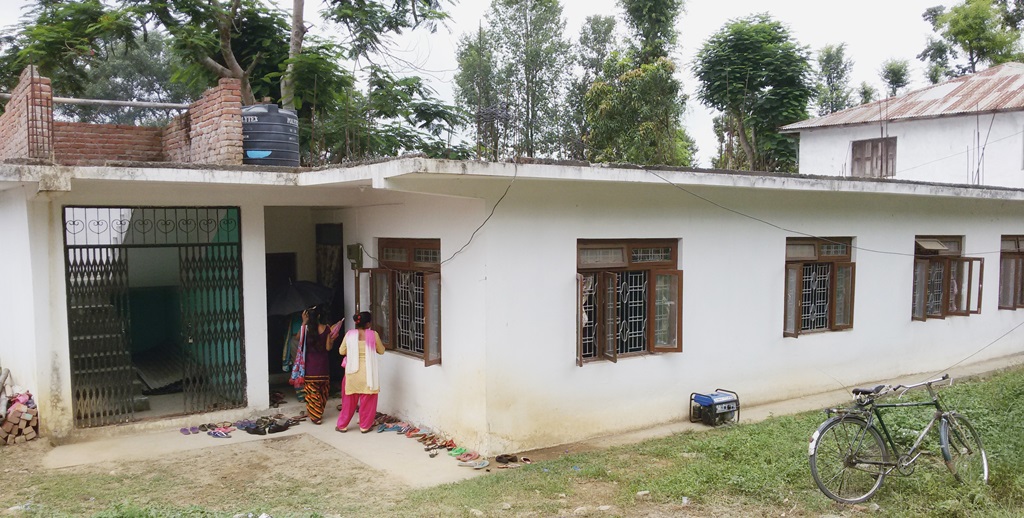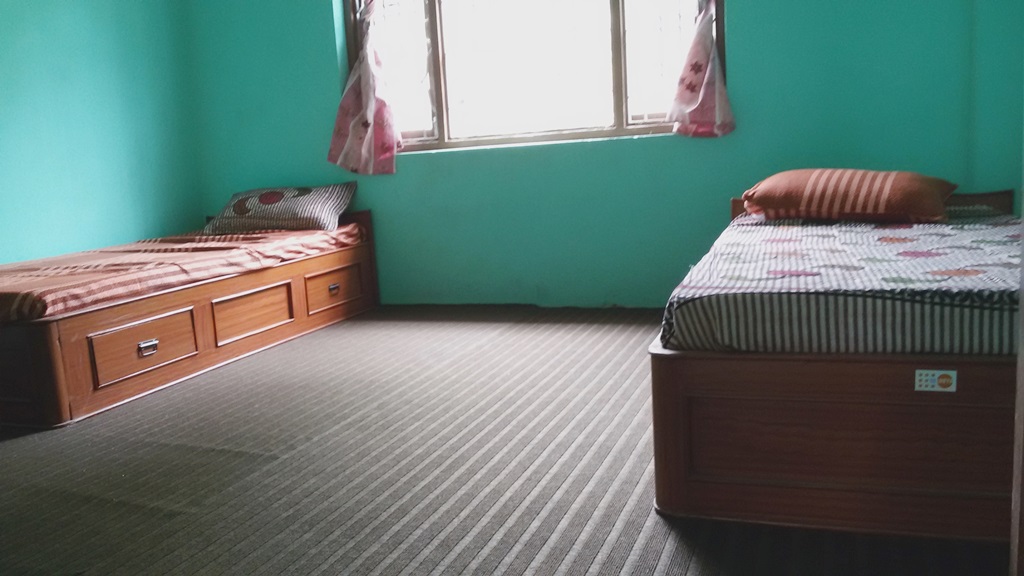It is not uncommon for gender-based violence to increase in the aftermath of natural disasters.

SINDHULI DISTRICT, Nepal - After losing her house to the devastating earthquake that hit Nepal on April 25, Sanu (name changed to protect identity), 20, was lured away from her hometown by promises of a new life. Instead, she says her would-be husband "raped me" and escaped. She has found refuge in a UNFPA-supported safe house.
"He promised that he would marry me, after building a new house here," Sanu told staff members at the safe house in Sindhuli district, where she agreed to share her story if her identity was protected. Sanu has filed a case with the District Court, and police have launched an investigation to locate the alleged suspect's whereabouts.
Addressing sexual violence in the wake of natural disasters
It is not uncommon for gender-based violence to increase in the aftermath of natural disasters. The survivors are usually women and adolescents, whose vulnerability is exacerbated in the chaos of a crisis. Separated from their family and community, they are often at increased risk of exploitation and abuse.
Intimate partner violence can also rise among crisis-affected populations, as many men who have lost jobs, status and stability take out their frustrations on their partners. This was the case for Sita (name changed to protect identity), 16, whose husband started to physically abuse her after the earthquake. Four-months pregnant, she was referred to the safe house by the Inter-party Women's Network, a local group of women activists who spearhead the project with support from the District Development Committee, a key partner for UNFPA.
Inaugurated on 10 June, this is the first safe house for survivors of gender-based violence in Sindhuli. UNFPA has been providing technical and logistical support, as well as providing psychosocial counsellors. There are currently 13 safe houses in UNFPA-supported districts.
Finding shelter and comfort
Safe houses provide shelter and support for survivors of gender-based violence. During their stay, they have access to a variety of services and activities, including vocational training, as well as counselling to help them cope with trauma and prepare them for reintegration when they leave.

"The services provided seem to lift their morale," says Sita Ghising, a staff member at the house. Survivors are referred from Village Development Committees (VDCs) in the district to the safe house.
"We are happy that they feel like it is their home," adds Shanta Pakhrin, Head of the Inter-party Women Network.
Working with law enforcement
While they provide shelter and support for survivors of violence, safe houses are also linchpins for coordinating legal support and referrals with local government and law enforcement agencies.
"Cases received at district level and by the police will be referred to the safe house," says Krishna Gurung, Officer at the Women and Children's Office (WCO) in Sindhuli. "We have been coordinating with line agencies, UNFPA and other development partners to successfully run the safe house."
As such, the police, hospital and court administrations refer gender-based violence survivors to the safe house where they can stay until they finish medical treatment or their court cases are resolved. The WCO is planning to operationalize the safe house as a Female-Friendly Space.



